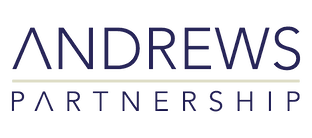ESG
2022: The year of the Chief ESG Officer
More than just a buzzword, ESG is driving demand for leadership talent.
There’s no denying that there has been seismic shift over the past decade in the perception of corporate profit. It’s no longer just about how much your business is making, but how it made it, and the impact it had in doing so.
While 10 years ago it was mainly activists who were concerned about issues such as environmental degradation, labour exploitation and bribery, now financial markets are driving the discussion, and CEOs are listening. Our recent research, The New Career Playbook for Corporate Affairs, asked respondents to identify their business’ main priority; almost a quarter picked ESG-related issues.
Cue the entry of the Chief ESG Officer. Sitting on the corporate or subsidiary board, this individual directs the company’s efforts to maximise its leadership position in Environment, Social and Governance issues. Working closely with the CEO and CFO, the Chief ESG Officer likely has a financial markets background, bringing a critical understanding of how markets will judge and measure the business’ ESG efforts. They may also come from an internal Finance function background, allowing them to maximise the value of ESG initiatives for internal performance and efficiency.
That’s very different from the much-discussed Chief Sustainability Officer, right? The scope is much broader, allowing the business to focus on a wider set of challenges; equally, the individual is very much a commercial leader, rather than a functional head. The Chief ESG Officer is ultimately responsible for improving business performance and the markets’ perception of that performance through various metrics, whereas the Chief Sustainability Officer prioritises sustainability goals.
So what is driving demand for Chief ESG Officers?
- Recognition of ESG as a key board agenda item.
It might seem obvious now, but even just two years ago, ESG wasn’t necessarily a key item on the board agenda. Having been treated as an afterthought by most businesses, the last two years has brought into sharp relief the need to deliver a comprehensive ESG program. The implications for ESG practitioners are that they need to be outstanding stakeholder managers, able to translate the demands of the business into deliverables, and able to immediately align the ESG agenda with the corporate strategy. Employers are looking favourably on candidates who have demonstrable experience interacting with boards, or more broadly with the c-suite, and an ability not just to inform the board, but to understand how the board can add value to the ESG agenda.
As one respondent to our Playbook put it: ““For us in APAC, closely linked with our ESG focus is a determination to ‘operate well’ – and also a focus on expansion, which has to be done responsibly. Our firms are opening the door on our commercial agenda via co-investment with government. They want to make sure they are leading in any ESG areas that will affect the business, because ESG and reputation are now so integrally linked.”
- Sustainable supply chain as a key element of ESG, particularly for Consumer Goods companies.
You can run from your supply chain, but you can’t hide. It used to be enough to ensure that you manufactured your goods in an environmentally and socially responsible manner. No longer: now businesses are increasingly aware of the need for responsible sourcing on components and inputs to ensure a clean supply chain. Recent examples include the Xinjiang cotton crisis, which saw several major brands agree not to use cotton sourced from Xinjiang following allegations of forced labour, and the claims of modern slavery involving several major Thai seafood suppliers, not to mention European pressure on businesses that use palm oil in food production. The ability to fully audit the supply chain, and correctly communicate outcomes to stakeholders, is a key part of the ESG skillset.
- Green Finance, with ESG practitioners now a core part of banking teams in the Financial Services sector.
ESG is taking an ever-more-important role in Financial Services, less from a compliance point of view, and more from a finance structuring point of view, Green Finance is a growing priority not only for international banks, but also major regional financial institutions. Maybank, for example, has announced it will not finance any new greenfield coal mining activity; OCBC made the same move in 2019; RHB Bank will not fund any new coal-fired power stations or coal mines; and CIMB will phase coal out of its portfolio entirely by 2040. ESG practitioners are therefore now heavily involved in deal structuring and core decision-making as banks pursue green deals.
- Reporting guidelines driving demand for skills in Asia.
We’ve typically looked to Europe and the US for ESG regulatory developments, but increasingly Asia (and particularly China, which is looking to set its own standards in myriad sectors) has been taking a lead in developing new standards for regulatory reporting, and in turn, new demands for talent. While the UK Financial Conduct Authority has been developing far-regulatory initiatives, so has the Monetary Authority of Hong Kong and the Japanese Financial Services Authority have also been setting the agenda.
- Demand for Finance and Strategy talent in the ESG function.
If ESG is not primarily about Sustainability, but about maximising the internal efficiencies, performance gains and attractiveness to capital, we should be examining alternative sources of talent. The Chief Sustainability Officer is likely to come from a Finance background – whether that be internal finance or financial services – and understand the power of external standards, regulations and metrics have on the performance of the business. They must have a commercial mindset and be able to drive results, but at the same time, must understand the thinking of market players, investors and analysts so that they can communicate the company’s progress against its ESG goals in a relevant way.
Given the diverse set of skills they are required to possess, the Chief Sustainability Officer role is not going to prove an easy one to fill. Finding a candidate who is both aware of the ESG reporting structures and also the financial reporting structures their businesses operate in is hard enough. Bringing that reporting skillset together with commercial nous and corporate vision is even more challenging.
In the Asia Pacific region, we have the opportunity to set the agenda on ESG. But while governments can set the standards, it’s up to businesses to identify the opportunities these standards present and leverage them fully. In order to do that, they need the talent of the Chief ESG Officer and their team.
Andrews Partnership are the reputation experts, with offices in Hong Kong and Singapore working across Asia, as the leading specialist corporate affairs, communications and investor relations executive search firm. We excel at understanding each organisation's unique challenges and appointing the right talent, who make meaningful business impact.


